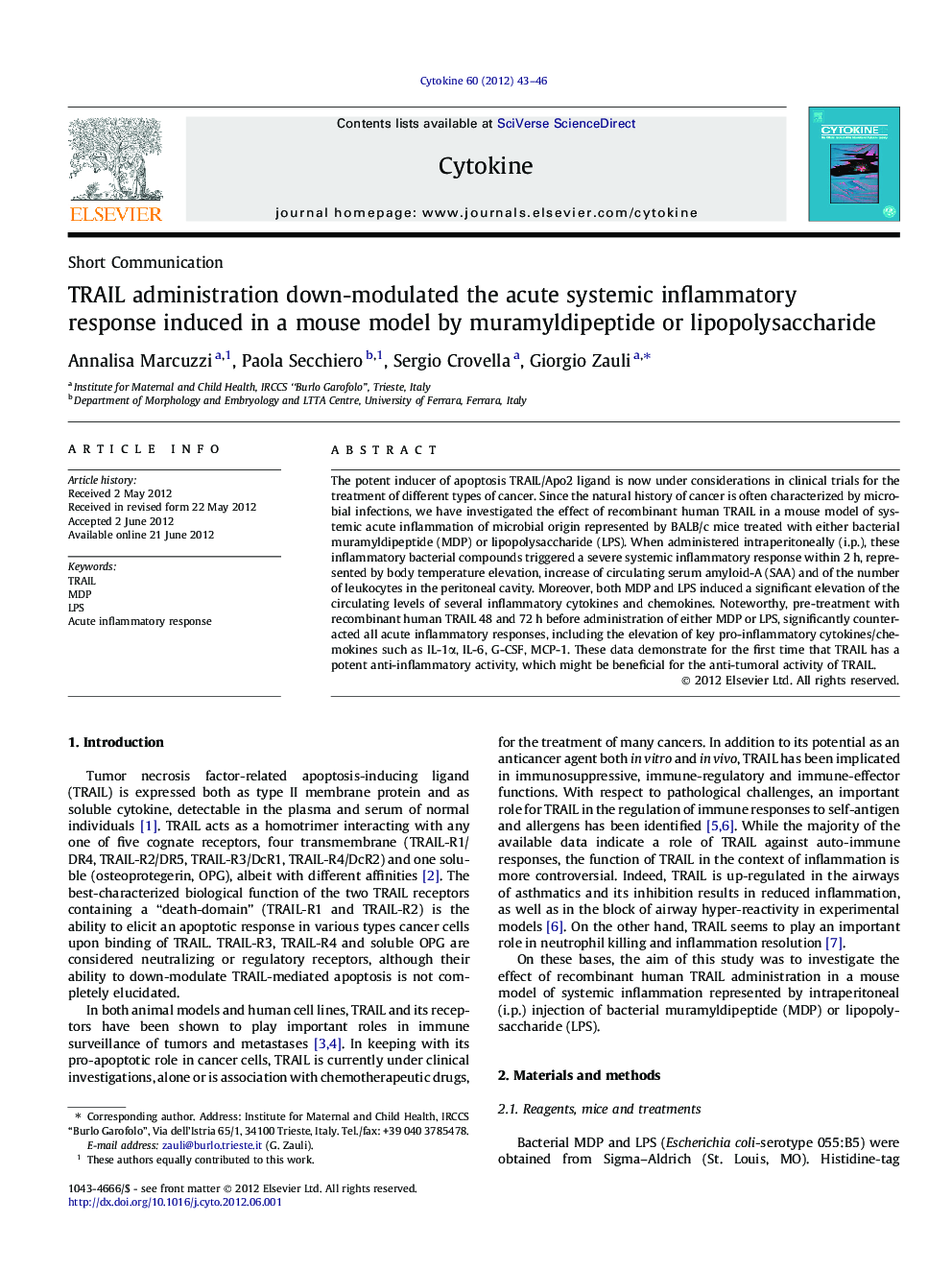| Article ID | Journal | Published Year | Pages | File Type |
|---|---|---|---|---|
| 5897974 | Cytokine | 2012 | 4 Pages |
The potent inducer of apoptosis TRAIL/Apo2 ligand is now under considerations in clinical trials for the treatment of different types of cancer. Since the natural history of cancer is often characterized by microbial infections, we have investigated the effect of recombinant human TRAIL in a mouse model of systemic acute inflammation of microbial origin represented by BALB/c mice treated with either bacterial muramyldipeptide (MDP) or lipopolysaccharide (LPS). When administered intraperitoneally (i.p.), these inflammatory bacterial compounds triggered a severe systemic inflammatory response within 2 h, represented by body temperature elevation, increase of circulating serum amyloid-A (SAA) and of the number of leukocytes in the peritoneal cavity. Moreover, both MDP and LPS induced a significant elevation of the circulating levels of several inflammatory cytokines and chemokines. Noteworthy, pre-treatment with recombinant human TRAIL 48 and 72 h before administration of either MDP or LPS, significantly counteracted all acute inflammatory responses, including the elevation of key pro-inflammatory cytokines/chemokines such as IL-1α, IL-6, G-CSF, MCP-1. These data demonstrate for the first time that TRAIL has a potent anti-inflammatory activity, which might be beneficial for the anti-tumoral activity of TRAIL.
⺠LPS and MDP induce acute inflammation in a mouse model. ⺠Cytokines and chemokines are elevated after LPS or MDP treatment. ⺠TRAIL treatment completely abolish the pro-inflammatory phenotype. ⺠TRAIL down-regulates serum pro-inflammatory cytokines induced by either LPS or MDP.
